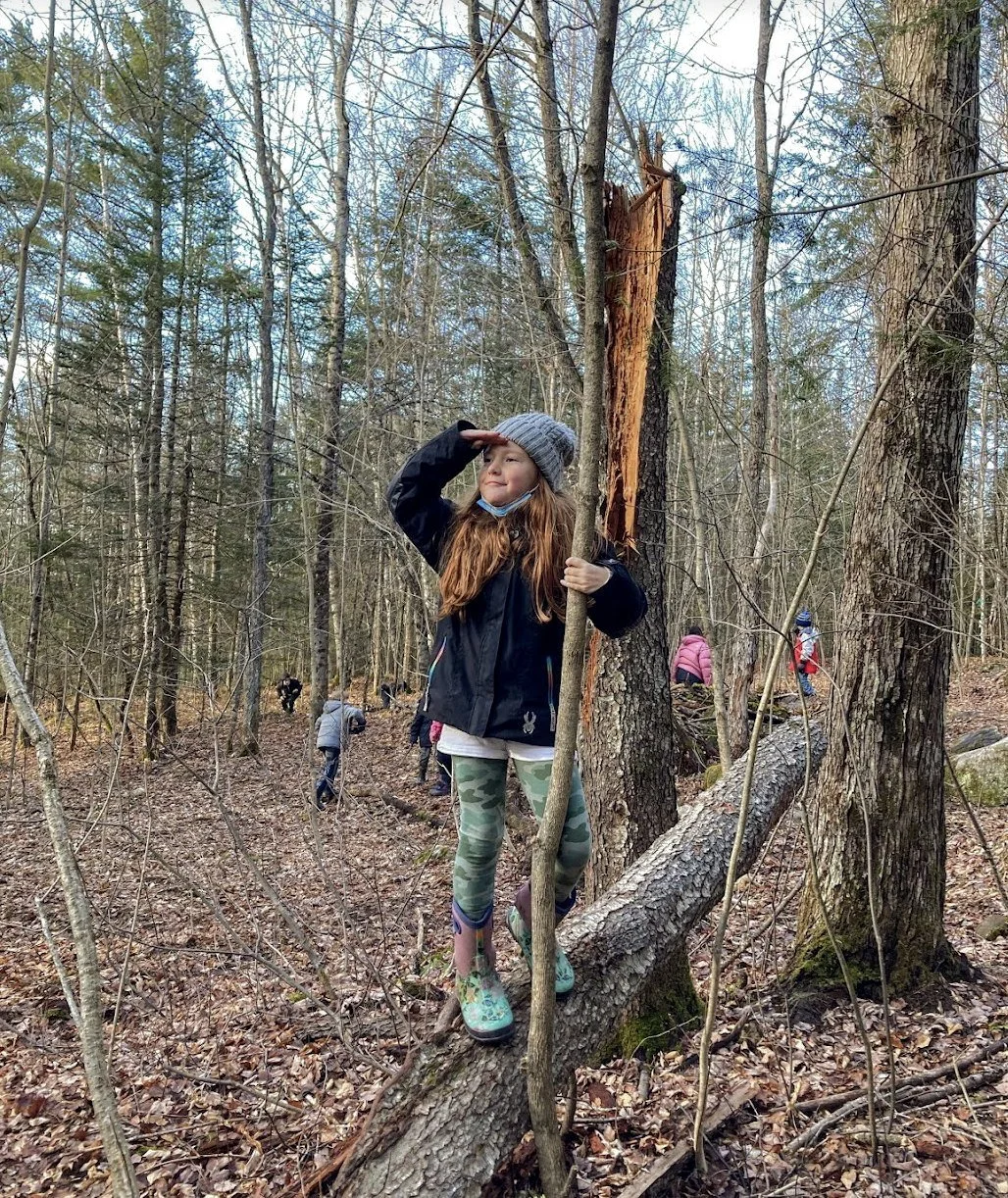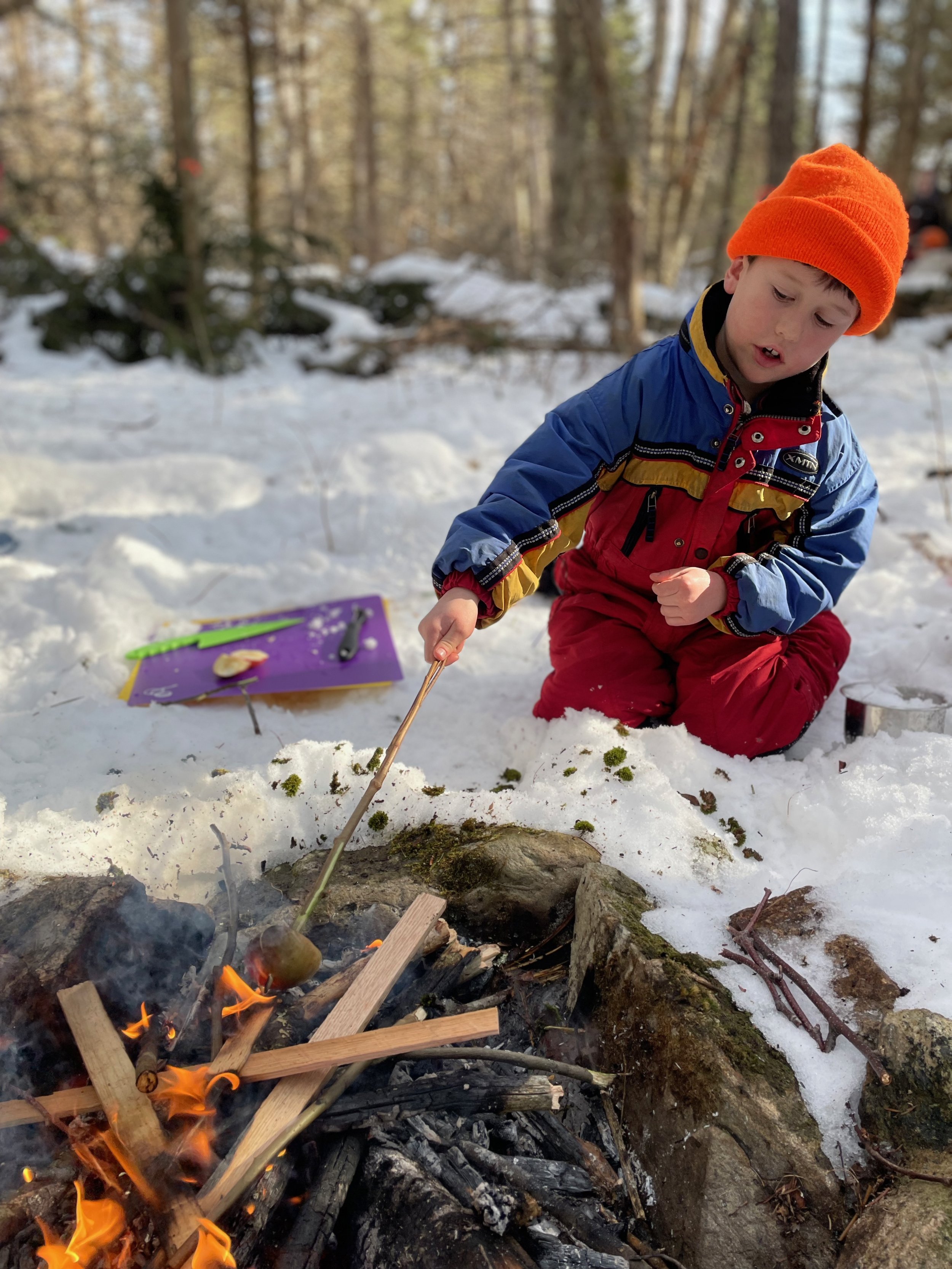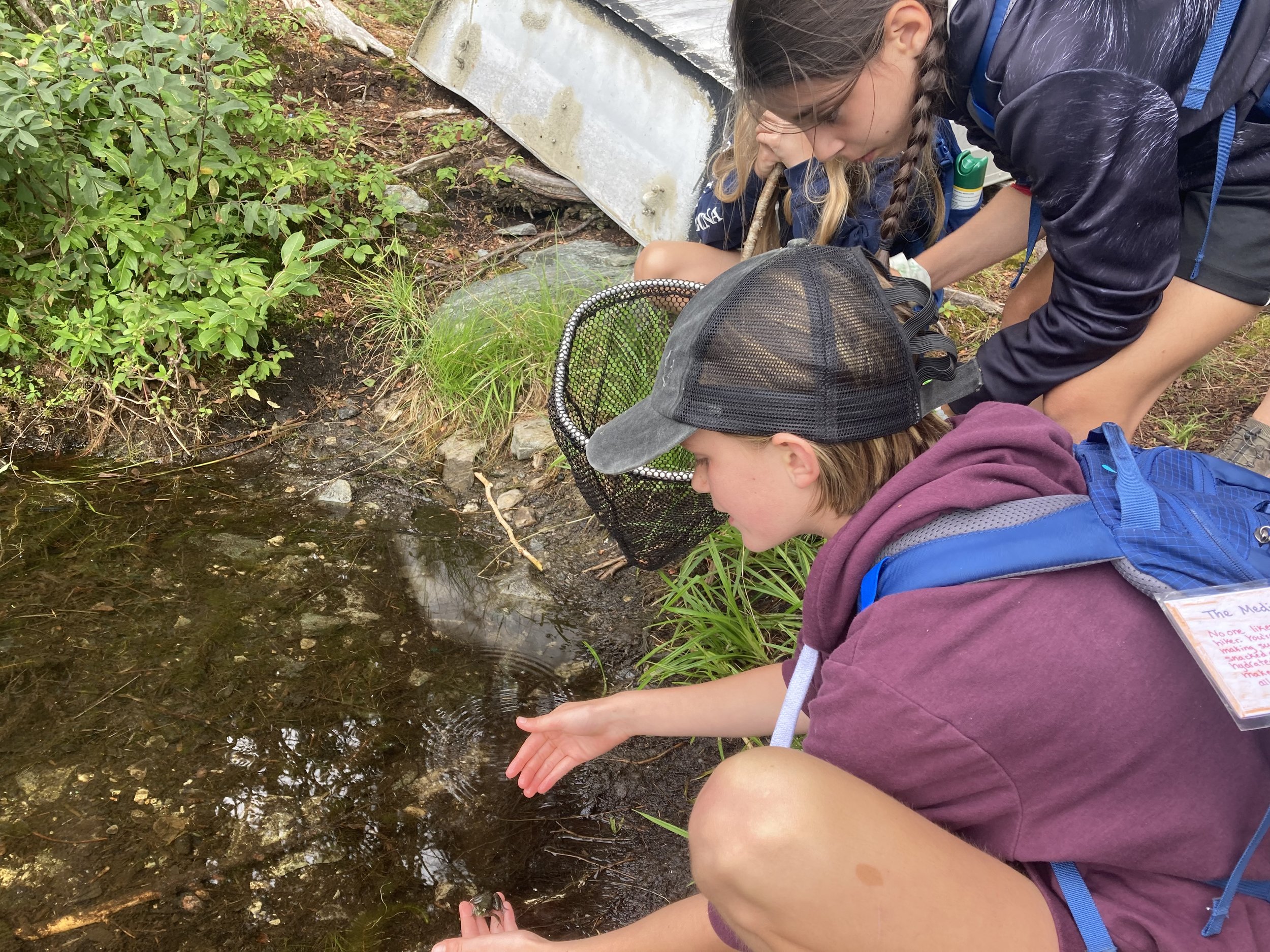Philosophy of Education
Research shows that our early experiences in nature are precursors to caring for the environment as adults. This can be as simple as taking a walk in the woods or gardening and growing our own food. From the younger years, activities such as unstructured, imaginative play in nature, gardening, and lovingly preparing wholesome, nutritious meals should be a critical component of our education. Additionally, spending time immersed in nature as adolescents and young adults allows us to form life-long relationships with the natural world.
“The more slowly trees grow at first, the sounder they are at the core, and I think the same is true of human beings.”
Taproot is an organization in which relationships are developed – with our food, with the environment, and with each other. Our programs are not simply based in agriculture, food, or ecology, but rather at the intersection of all three, because after all we are not separate but a part of a larger whole.
We believe that the path toward an eco-conscious society is to nurture empathy and develop a deep, caring relationship with the land rather than from a position of fear and hopelessness. Our philosophy of education is inspired by Waldorf Education, a form of humanistic education developed by Rudolf Steiner in the early twentieth century that incorporates the arts and aesthetic experiences and espouses “Slow Education” principles. Taproot's philosophy is holistic, giving equal measure to the realms of thinking, feeling, and willing. We approach teaching and learning through the lens of childhood development with the idea that “slow education” seeks to promote learning in depth through discovery, rather than a results-driven curriculum based on generic goals and unreliable standards. By encouraging arts-based learning and connections through aesthetic experiences, Taproot cultivates beauty, imagination, and caring relations. We strive for children to learn through discovery and self reflection, bringing context and value to learning experiences while developing the capacity for learning to care for the environment. When children relate what they learn to their own experience, they are interested and alive, and what they learn becomes their own.
We believe education should…
educate the whole student, aiming beyond their intellect to acknowledge and engage their physical, emotional, spiritual, and social being
be developmentally appropriate while at the same time acknowledging that a child constructs her knowledge from her experiences with the environment and within a broader social system
be ecological by exploring the interconnectedness of the world through a systems and resilience thinking lens and by helping to nurture relationships with each other and with the natural world
be grounded in place
be integrated across disciplines and immersed in the arts
be imaginative and transformative, motivating students to become empowered change agents
be experiential, allowing students to become immersed in aesthetic experiences while allowing time for critical analysis and reflection
nurture empathetic individuals
develop culturally aware individuals who acknowledge many different worldviews and values
nurture creative individuals who are self-motivated, self-directed, and life-long learners







